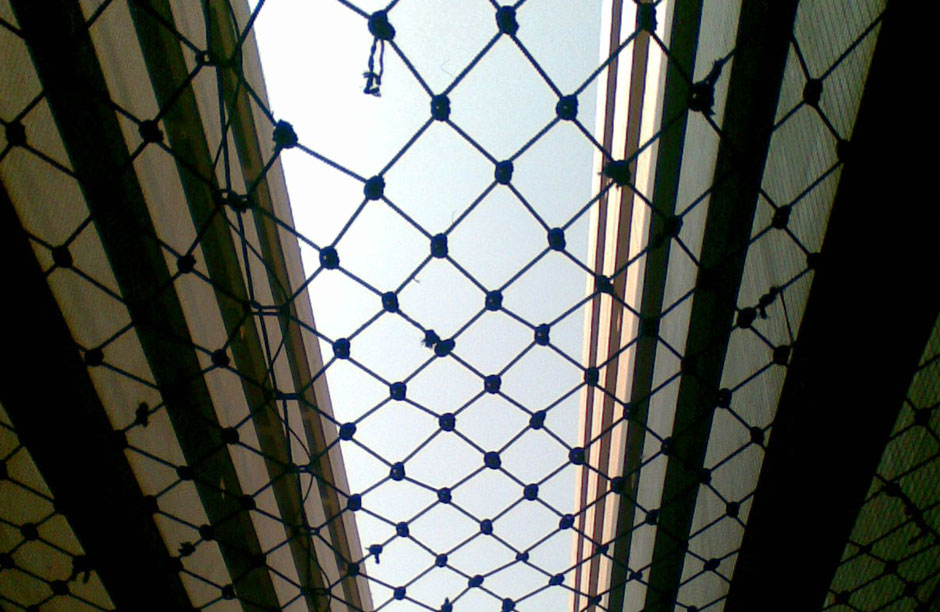Suicide and Demand
By Nathaniel Sandler

A lot of people sacrifice themselves for their work, willingly or unwillingly. An NFL football player risks his body and mind for millions, a career bartender his liver, or even the more obvious dangers of a job like a wartime journalist who may pay the ultimate price caught in the line of fire. But there has been a recent spate of suicides amongst the factory workers that provide products for the United States. In May, some media attention shed light on Foxconn, the mega-factory that produces iPads and iPhones for Apple in Shenzen China.
Today is Black Friday, the auspiciously named shopping holiday after Thanksgiving in which mega stores across the United States are lowering their prices never seen throughout the rest of the year. The name in and of itself rings scary. If you told a child that it was Black Friday they would be instilled with terrible thoughts of ghouls and goblins. Indeed other “Black Friday”s throughout history were known for only negative events – stock market crashes in 1869 and 1929, a deathly brushfire in 1939, and a deadly hurricane in 1881. That the media and retailers have chosen to re-contextualize this word for shopping is telling of how far our obsession with consumption has come. A phrase typically invoked for death and financial ruin is now used yearly for a day everyone buys gadgets at substantial savings. The modern use referring to the shopping day after Thanksgiving was coined in the 1960s by the Philadelphia Police Department because the day was wrought with overcrowding, crime and congestion within the ebb and flow of the city’s system.
While some people feed off the savings from Black Friday, others see these trampling incidents as a strange endemic that highlights the depths to which many in the U.S. will go to for a deal on treasured products. Product pricing is lowered to the point of what advertising executives may call “INSANITY”. And that’s just what today inspires. The irony is in the very fact that one is convinced they are saving through the act of spending yet people line the streets outside of huge retail shops that are offering deep discounts sometimes as early as the night before their turkey and yam dinner. For instance, Walmart will be selling the Nintendo Wii for $99.99 which regularly retails for around $149.99 a savings of around 35%. Products are going for so much cheaper it is easy for working people to realize that actual money is at stake and for others to fall prey to petty acts of violence. We can only speculate about the desperate and unchecked greed that inspires one person to trample another, or to pull a gun inside of a crowded Toys ‘R’ Us. While incidents like these may happen on other days at shopping malls and mega stores, it is on Black Friday that the shopaholic nature of the American people becomes exposed and is revealed violent and deadly.
As mentioned before people are also dying on the other side of the supply chain, but the psychology behind this is much more complicated. It is working conditions and harshly forced desperation that causes a man or woman to take their own life in the face of strenuous overtime, work deadlines, and pressure from superiors. Over an eleven month period eighteen people attempted suicide, fourteen of which died. Apparently the factory responsible for producing Apple’s most widely sold product is run with a military-like structure and tactics for dealing with employees. In order to try and attempt to curb the growing issue, Foxconn made their factory workers sign a non-suicide pact. Photos have also spread throughout the web of factory buildings swaddled with safety nets as a second measure.
The fact that these people thought there was no other way out from underneath the pressure of their job is potentially indicative of how products have become more valuable than people. However, this is where it gets complicated: Each person involved in the manufacturing process, whether assembly, shipping, or logistics is a link in the supply chain – that includes the consumer too. Essentially, it is the chain that is valued so highly and the products and people are ultimately dispensable when proven to be a weak link.
It may be a brash and slightly unreasonable correlation to make between the violence of American Black Friday shopping lines and the psychological terror that might cause a man or woman to take their own life, however in each of these examples we can see where the system is an unsustainable one.
There has been some notable and perhaps necessary backlash against the Black Friday craze burgeoning on the internet recently. Given the perpetuation and prominence of the Occupy movement, a rejection of the stark capitalist consumption that occurs the day after Thanksgiving fits the mold. America asks us to give thanks, and then give back to Fortune 500 retailers.
This Black Friday it might do us all best if we consider it a day of doom and gloom as its name foretells. Stay in. Don’t shop. If you are looking for savings – save yourself. If you are feeling the need to spend – spend your time – with loved ones.
And, if you are still desperate for a bargain, last year on Black Friday I sold my fingers. There are still a few available at an even further discounted rate.
